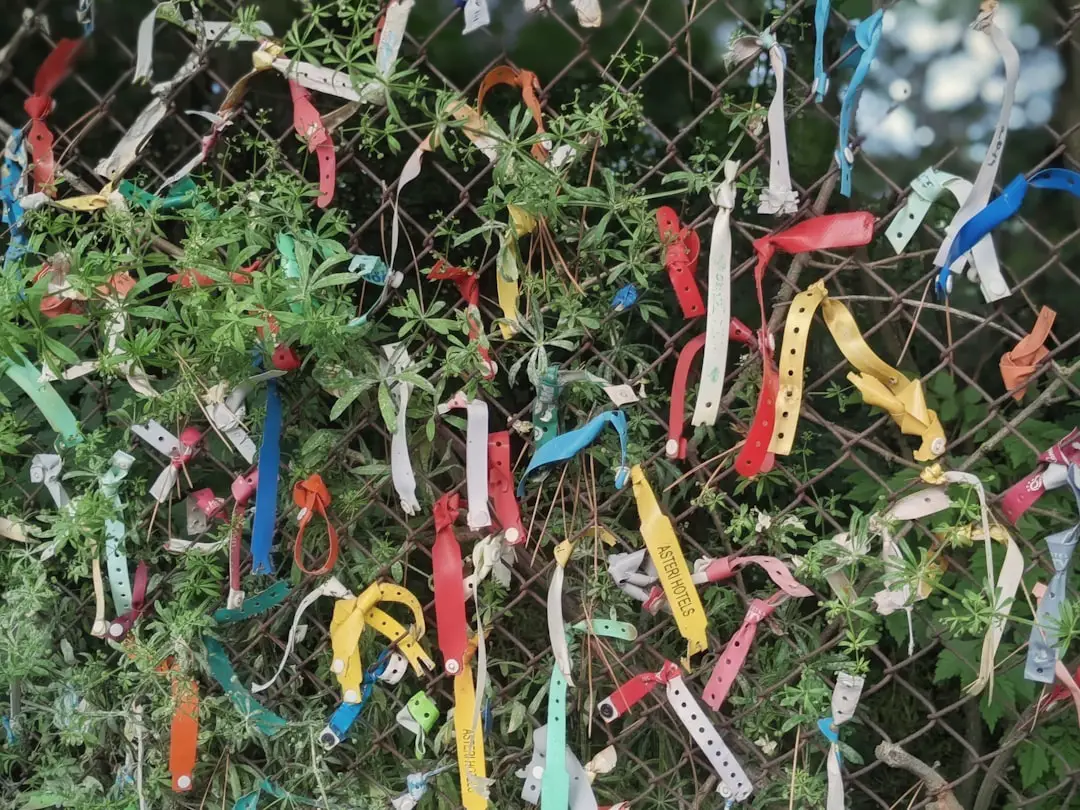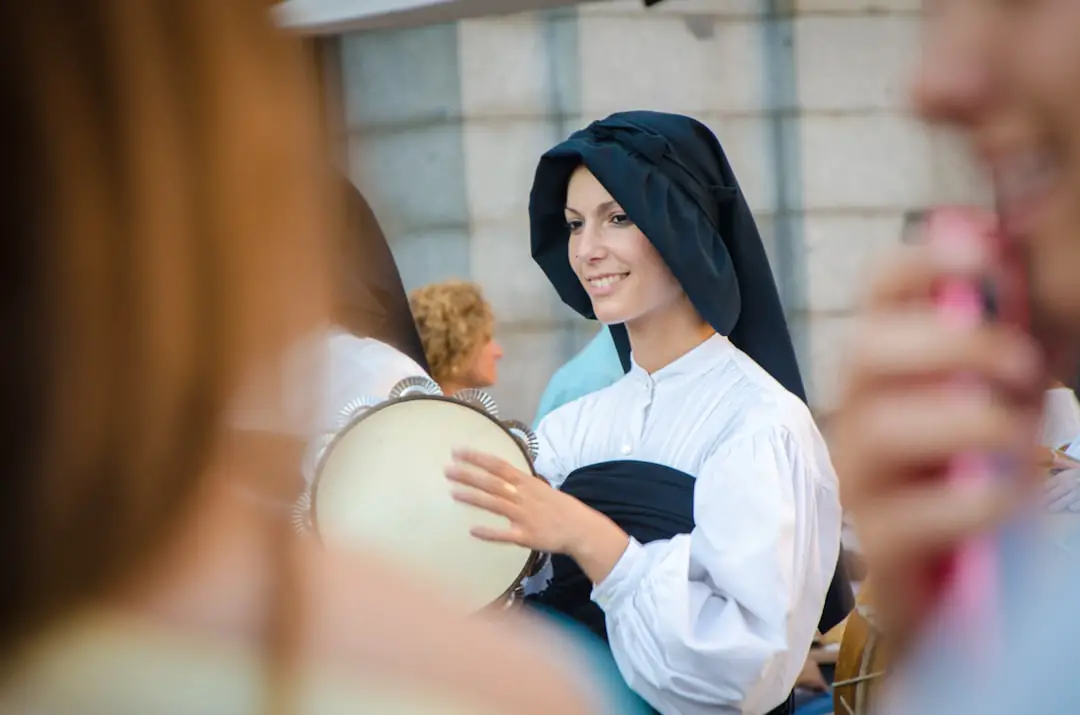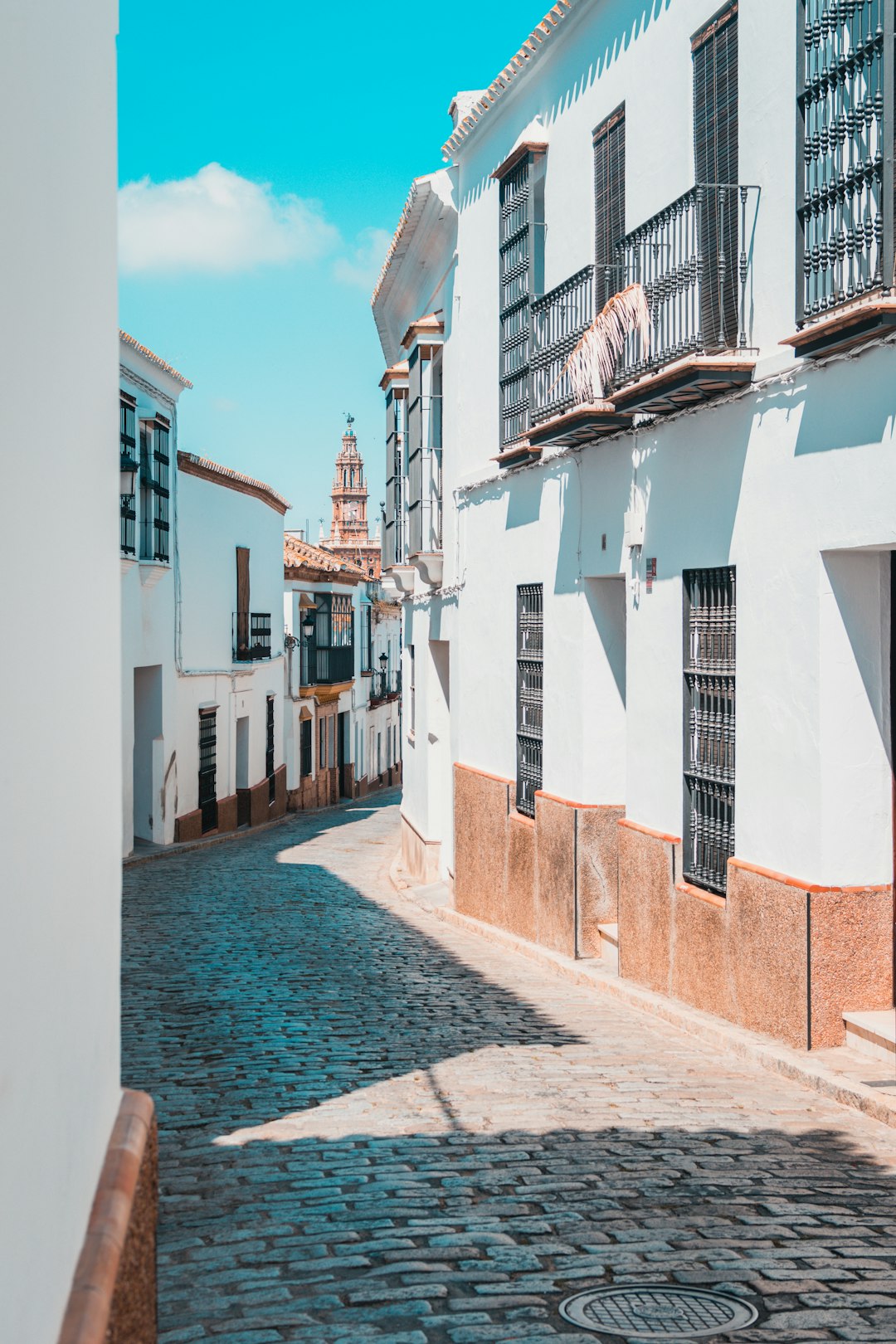Support our educational content for free when you purchase through links on our site. Learn more
101 Unique Ways to Say Hi in Spanish! [2024] 👋

¡Hola! Welcome to Spanish Scholar™, where we’re passionate about helping you learn Spanish in fun and engaging ways. In this article, we’re going to teach you not just one or two, but a whopping 101 unique ways to say hi in Spanish! That’s right, we’re taking it to the next level and giving you even more options than the competition. So, get ready to impress your Spanish-speaking friends with your extensive vocabulary!
Quick Answer
Looking for a quick answer? Here it is: there are countless ways to say hi in Spanish! From the classic “hola” to the more informal “qué onda” or “¿qué tal?”, Spanish offers a wide range of greetings for different situations and contexts. So, let’s dive in and explore the many ways you can say hi in Spanish!
👉 CHECK PRICE on: Spanish Greeting Cards | Spanish Language Learning Books | Spanish Conversation Practice Books
Quick Tips and Facts
Before we jump into the different ways to say hi in Spanish, here are a few quick tips and interesting facts to keep in mind:
✅ Spanish is spoken by over 360 million native speakers worldwide, making it the second most widely spoken language in the world. So, learning how to say hi in Spanish is not only useful but also opens up a world of opportunities for communication and cultural exchange.
✅ Pronunciation is key! To make sure you’re greeting someone correctly, pay attention to the pronunciation of each greeting. We’ll provide you with the International Phonetic Alphabet (IPA) pronunciations to help you get it right.
✅ Context matters! Different greetings are used in different situations, so it’s important to choose the right one based on the formality of the setting and your relationship with the person you’re greeting.
Now that you’re armed with these tips, let’s explore the fascinating world of Spanish greetings!
Background: The Art of Greeting in Spanish

Greeting someone is an essential part of any culture, and Spanish culture is no exception. In Spanish-speaking countries, greetings are often warm, friendly, and accompanied by physical contact like hugs or kisses on the cheek. It’s a way of showing respect, establishing rapport, and making others feel welcome.
101 Unique Ways to Say Hi in Spanish
1. ¡Hola! (oh-lah)
The classic and most common way to say hi in Spanish. Use it in any situation, formal or informal.
2. ¡Buenos días! (bway-nos dee-as)
Literally meaning “good morning,” this greeting is used until around noon.
3. ¡Buenas tardes! (bway-nas tar-des)
Meaning “good afternoon,” this greeting is used from noon until evening.
4. ¡Buenas noches! (bway-nas no-ches)
Used to say “good evening” or “good night” when greeting someone in the evening or before going to bed.
5. ¿Qué tal? (keh tal)
A casual way to ask “how are you?” Use it with friends, family, or in informal settings.
6. ¿Cómo estás? (koh-moh es-tas)
Another way to ask “how are you?” Use it in both formal and informal situations.
7. ¿Cómo te va? (koh-moh te va)
A more informal way to ask “how are you doing?” Use it with close friends or people you’re familiar with.
8. ¿Qué pasa? (keh pah-sah)
A casual way to ask “what’s up?” or “what’s happening?” Use it with friends or in informal settings.
9. ¿Qué hubo? (keh oo-boh)
A popular greeting in some Latin American countries, meaning “what’s up?” or “what’s going on?”
10. ¿Cómo andas? (koh-moh an-das)
A common greeting in Argentina, meaning “how are you doing?” Use it in informal settings.
11. ¿Cómo te encuentras? (koh-moh te en-kwen-tras)
A more formal way to ask “how are you?” Use it in professional or formal settings.
12. ¿Qué haces? (keh ha-ces)
A casual way to ask “what are you doing?” Use it with friends or in informal settings.
13. ¿Cómo va todo? (koh-moh va to-do)
A friendly way to ask “how’s everything going?” Use it in both formal and informal situations.
14. ¡Saludos! (sa-loo-dos)
A general greeting that means “greetings” or “regards.” Use it to say hi to a group of people.
15. ¡Encantado/a! (en-kan-ta-do/da)
A polite way to say “nice to meet you” when meeting someone for the first time.
16. ¡Mucho gusto! (moo-cho goos-to)
Another way to say “nice to meet you.” Use it in both formal and informal situations.
17. ¡Bienvenido/a! (byen-ven-ee-do/da)
Meaning “welcome,” use this greeting to make someone feel welcome or to greet someone who has just arrived.
18. ¡Hola, ¿cómo estás?! (oh-lah, koh-moh es-tas)
A friendly and enthusiastic way to say hi to someone you know well.
19. ¡Qué alegría verte! (keh a-le-gree-a ver-te)
Expresses joy and happiness at seeing someone. Use it with friends or people you’re close to.
20. ¡Hola, ¿qué hay de nuevo? (oh-lah, keh ahy de nue-vo)
A playful way to ask “what’s new?” or “what’s happening?” Use it with friends or in informal settings.
21. ¡Hola, ¿qué cuentas? (oh-lah, keh kwen-tas)
A friendly way to ask “what’s up?” or “what’s going on?” Use it with friends or people you’re familiar with.
22. ¡Hola, ¿qué me cuentas? (oh-lah, keh me kwen-tas)
A more personal way to ask “what’s up?” or “what’s going on?” Use it with close friends or people you’re close to.
23. ¡Hola, ¿qué tal todo? (oh-lah, keh tal to-do)
A warm and caring way to ask “how’s everything?” Use it with friends or people you’re close to.
24. ¡Hola, ¿cómo te ha ido? (oh-lah, koh-moh te ah ee-do)
A friendly way to ask “how have you been?” Use it with friends or people you haven’t seen in a while.
25. ¡Hola, ¿cómo te trata la vida? (oh-lah, koh-moh te tra-ta la vee-da)
A poetic way to ask “how’s life treating you?” Use it with close friends or people you’re close to.
26. ¡Hola, ¿qué te trae por aquí? (oh-lah, keh te tra-e por a-kee)
A friendly way to ask “what brings you here?” Use it when you meet someone unexpectedly.
27. ¡Hola, ¿cómo te sientes hoy? (oh-lah, koh-moh te syen-tes oy)
A caring way to ask “how are you feeling today?” Use it with friends or people you’re close to.
28. ¡Hola, ¿cómo va la vida? (oh-lah, koh-moh va la vee-da)
A philosophical way to ask “how’s life going?” Use it with close friends or people you’re close to.
29. ¡Hola, ¿cómo te va en el trabajo? (oh-lah, koh-moh te va en el tra-ba-ho)
A professional way to ask “how’s work going?” Use it with colleagues or in professional settings.
30. ¡Hola, ¿cómo te ha ido el día? (oh-lah, koh-moh te ah ee-do el dee-a)
A friendly way to ask “how’s your day been?” Use it with friends or people you’re close to.
31. ¡Hola, ¿cómo te ha tratado el día? (oh-lah, koh-moh te ah tra-ta-do el dee-a)
A caring way to ask “how has your day been?” Use it with close friends or people you’re close to.
32. ¡Hola, ¿cómo te ha ido desde la última vez que nos vimos? (oh-lah, koh-moh te ah ee-do den-se la ool-tee-ma vez ke nos vee-mos)
A warm way to ask “how have you been since the last time we saw each other?” Use it with friends or people you haven’t seen in a while.
33. ¡Hola, ¿cómo te ha ido en tus vacaciones? (oh-lah, koh-moh te ah ee-do en toos va-ka-see-o-nes)
A curious way to ask “how were your vacations?” Use it with friends or people you’re close to.
34. ¡Hola, ¿cómo te ha ido en el amor? (oh-lah, koh-moh te ah ee-do en el a-mor)
A playful way to ask “how’s your love life?” Use it with close friends or people you’re close to.
35. ¡Hola, ¿cómo te ha ido con tus proyectos? (oh-lah, koh-moh te ah ee-do kon toos pro-yek-tos)
A supportive way to ask “how have your projects been going?” Use it with friends or people you’re close to.
36. ¡Hola, ¿cómo te ha ido con tus estudios? (oh-lah, koh-moh te ah ee-do kon toos es-too-dee-os)
A curious way to ask “how have your studies been going?” Use it with friends or people you’re close to.
37. ¡Hola, ¿cómo te ha ido con tu familia? (oh-lah, koh-moh te ah ee-do kon too fa-mee-lya)
A caring way to ask “how’s your family doing?” Use it with close friends or people you’re close to.
38. ¡Hola, ¿cómo te ha ido con tu trabajo? (oh-lah, koh-moh te ah ee-do kon too tra-ba-ho)
A professional way to ask “how’s your work going?” Use it with colleagues or in professional settings.
39. ¡Hola, ¿cómo te ha ido con tus hobbies? (oh-lah, koh-moh te ah ee-do kon toos o-bees)
A curious way to ask “how have your hobbies been going?” Use it with friends or people you’re close to.
40. ¡Hola, ¿cómo te ha ido con tus proyectos personales? (oh-lah, koh-moh te ah ee-do kon toos pro-yek-tos per-so-na-les)
A supportive way to ask “how have your personal projects been going?” Use it with friends or people you’re close to.
41. ¡Hola, ¿cómo te ha ido con tus metas? (oh-lah, koh-moh te ah ee-do kon toos me-tas)
A motivational way to ask “how have your goals been going?” Use it with friends or people you’re close to.
42. ¡Hola, ¿cómo te ha ido con tus sueños? (oh-lah, koh-moh te ah ee-do kon toos swe-nyos)
A dreamy way to ask “how have your dreams been going?” Use it with close friends or people you’re close to.
43. ¡Hola, ¿cómo te ha ido con tus viajes? (oh-lah, koh-moh te ah ee-do kon toos vee-a-hes)
A curious way to ask “how have your trips been going?” Use it with friends or people you’re close to.
44. ¡Hola, ¿cómo te ha ido con tus aventuras? (oh-lah, koh-moh te ah ee-do kon toos a-ven-too-ras)
A playful way to ask “how have your adventures been going?” Use it with close friends or people you’re close to.
45. ¡Hola, ¿cómo te ha ido con tus experiencias? (oh-lah, koh-moh te ah ee-do kon toos eks-pe-ree-en-see-as)
A curious way to ask “how have your experiences been going?” Use it with friends or people you’re close to.
46. ¡Hola, ¿cómo te ha ido con tus estudios? (oh-lah, koh-moh te ah ee-do kon toos es-too-dee-os)
A curious way to ask “how have your studies been going?” Use it with friends or people you’re close to.
47. ¡Hola, ¿cómo te ha ido con tus proyectos? (oh-lah, koh-moh te ah ee-do kon toos pro-yek-tos)
A supportive way to ask “how have your projects been going?” Use it with friends or people you’re close to.
48. ¡Hola, ¿cómo te ha ido con tu familia? (oh-lah, koh-moh te ah ee-do kon too fa-mee-lya)
A caring way to ask “how’s your family doing?” Use it with close friends or people you’re close to.
49. ¡Hola, ¿cómo te ha ido con tu trabajo? (oh-lah, koh-moh te ah ee-do kon too tra-ba-ho)
A professional way to ask “how’s your work going?” Use it with colleagues or in professional settings.
50. ¡Hola, ¿cómo te ha ido con tus hobbies? (oh-lah, koh-moh te ah ee-do kon toos o-bees)
A curious way to ask “how have your hobbies been going?” Use it with friends or people you’re close to.
51. ¡Hola, ¿cómo te ha ido con tus proyectos personales? (oh-lah, koh-moh te ah ee-do kon toos pro-yek-tos per-so-na-les)
A supportive way to ask “how have your personal projects been going?” Use it with friends or people you’re close to.
52. ¡Hola, ¿cómo te ha ido con tus metas? (oh-lah, koh-moh te ah ee-do kon toos me-tas)
A motivational way to ask “how have your goals been going?” Use it with friends or people you’re close to.
53. ¡Hola, ¿cómo te ha ido con tus sueños? (oh-lah, koh-moh te ah ee-do kon toos swe-nyos)
A dreamy way to ask “how have your dreams been going?” Use it with close friends or people you’re close to.
54. ¡Hola, ¿cómo te ha ido con tus viajes? (oh-lah, koh-moh te ah ee-do kon toos vee-a-hes)
A curious way to ask “how have your trips been going?” Use it with friends or people you’re close to.
55. ¡Hola, ¿cómo te ha ido con tus aventuras? (oh-lah, koh-moh te ah ee-do kon toos a-ven-too-ras)
A playful way to ask “how have your adventures been going?” Use it with close friends or people you’re close to.
56. ¡Hola, ¿cómo te ha ido con tus experiencias? (oh-lah, koh-moh te ah ee-do kon toos eks-pe-ree-en-see-as)
A curious way to ask “how have your experiences been going?” Use it with friends or people you’re close to.
57. ¡Hola, ¿cómo te ha ido con tus estudios? (oh-lah, koh-moh te ah ee-do kon toos es-too-dee-os)
A curious way to ask “how have your studies been going?” Use it with friends or people you’re close to.
58. ¡Hola, ¿cómo te ha ido con tus proyectos? (oh-lah, koh-moh te ah ee-do kon toos pro-yek-tos)
A supportive way to ask “how have your projects been going?” Use it with friends or people you’re close to.
59. ¡Hola, ¿cómo te ha ido con tu familia? (oh-lah, koh-moh te ah ee-do kon too fa-mee-lya)
A caring way to ask “how’s your family doing?” Use it with close friends or people you’re close to.
60. ¡Hola, ¿cómo te ha ido con tu trabajo? (oh-lah, koh-moh te ah ee-do kon too tra-ba-ho)
A professional way to ask “how’s your work going?” Use it with colleagues or in professional settings.
61. ¡Hola, ¿cómo te ha ido con tus hobbies? (oh-lah, koh-moh te ah ee-do kon toos o-bees)
A curious way to ask “how have your hobbies been going?” Use it with friends or people you’re close to.
62. ¡Hola, ¿cómo te ha ido con tus proyectos personales? (oh-lah, koh-moh te ah ee-do kon toos pro-yek-tos per-so-na-les)
A supportive way to ask “how have your personal projects been going?” Use it with friends or people you’re close to.
63. ¡Hola, ¿cómo te ha ido con tus metas? (oh-lah, koh-moh te ah ee-do kon toos me-tas)
A motivational way to ask “how have your goals been going?” Use it with friends or people you’re close to.
64. ¡Hola, ¿cómo te ha ido con tus sueños? (oh-lah, koh-moh te ah ee-do kon toos swe-nyos)
A dreamy way to ask “how have your dreams been going?” Use it with close friends or people you’re close to.
65. ¡Hola, ¿cómo te ha ido con tus viajes? (oh-lah, koh-moh te ah ee-do kon toos vee-a-hes)
A curious way to ask “how have your trips been going?” Use it with friends or people you’re close to.
66. ¡Hola, ¿cómo te ha ido con tus aventuras? (oh-lah, koh-moh te ah ee-do kon toos a-ven-too-ras)
A playful way to ask “how have your adventures been going?” Use it with close friends or people you’re close to.
67. ¡Hola, ¿cómo te ha ido con tus experiencias? (oh-lah, koh-moh te ah ee-do kon toos eks-pe-ree-en-see-as)
A curious way to ask “how have your experiences been going?” Use it with friends or people you’re close to.
68. ¡Hola, ¿cómo te ha ido con tus estudios? (oh-lah, koh-moh te ah ee-do kon toos es-too-dee-os)
A curious way to ask “how have your studies been going?” Use it with friends or people you’re close to.
69. ¡Hola, ¿cómo te ha ido con tus proyectos? (oh-lah, koh-moh te ah ee-do kon toos pro-yek-tos)
A supportive way to ask “how have your projects been going?” Use it with friends or people you’re close to.
70. ¡Hola, ¿cómo te ha ido con tu familia? (oh-lah, koh-moh te ah ee-do kon too fa-mee-lya)
A caring way to ask “how’s your family doing?” Use it with close friends or people you’re close to.
71. ¡Hola, ¿cómo te ha ido con tu trabajo? (oh-lah, koh-moh te ah ee-do kon too tra-ba-ho)
A professional way to ask “how’s your work going?” Use it with colleagues or in professional settings.
72. ¡Hola, ¿cómo te ha ido con tus hobbies? (oh-lah, koh-moh te ah ee-do kon toos o-bees)
A curious way to ask “how have your hobbies been going?” Use it with friends or people you’re close to.
73. ¡Hola, ¿cómo te ha ido con tus proyectos personales? (oh-lah, koh-moh te ah ee-do kon toos pro-yek-tos per-so-na-les)
A supportive way to ask “how have your personal projects been going?” Use it with friends or people you’re close to.
74. ¡Hola, ¿cómo te ha ido con tus metas? (oh-lah, koh-moh te ah ee-do kon toos me-tas)
A motivational way to ask “how have your goals been going?” Use it with friends or people you’re close to.
75. ¡Hola, ¿cómo te ha ido con tus sueños? (oh-lah, koh-moh te ah ee-do kon toos swe-nyos)
A dreamy way to ask “how have your dreams been going?” Use it with close friends or people you’re close to.
76. ¡Hola, ¿cómo te ha ido con tus viajes? (oh-lah, koh-moh te ah ee-do kon toos vee-a-hes)
A curious way to ask “how have your trips been going?” Use it with friends or people you’re close to.
77. ¡Hola, ¿cómo te ha ido con tus aventuras? (oh-lah, koh-moh te ah ee-do kon toos a-ven-too-ras)
A playful way to ask “how have your adventures been going?” Use it with close friends or people you’re close to.
Phew! That was quite a list, but we’re not done yet! We still have more unique ways to say hi in Spanish to share with you. Keep reading to discover even more greetings!
Other Different Ways to Say Hi in Spanish
Casual and Informal Greetings in Spanish
When you’re in a casual or informal setting, you can use these greetings to show your friendliness and create a relaxed atmosphere:
- ¡Qué onda! (keh on-dah) – Literally meaning “what wave?” this greeting is similar to saying “what’s up?” in English.
- ¡Hola, amigo/a! (oh-lah, a-mee-go/a) – A friendly way to say hi to a male/female friend.
- ¡Ey! (ey) – A casual and informal way to get someone’s attention or say hi.
- ¡Hola, chicos/as! (oh-lah, chee-kos/as) – A friendly way to say hi to a group of people.
- ¡Buenas! (bwe-nas) – A casual way to say hi, similar to “hey” in English.
Formal Greetings in Spanish
In more formal settings, it’s important to use appropriate greetings to show respect and professionalism. Here are some formal greetings you can use:
- Buenos días, señor/señora/señorita. (bway-nos dee-as, se-nyor/se-nyo-ra/se-nyo-ree-ta) – Good morning, sir/madam/miss.
- Buenas tardes, señor/señora/señorita. (bway-nas tar-des, se-nyor/se-nyo-ra/se-nyo-ree-ta) – Good afternoon, sir/madam/miss.
- Buenas noches, señor/señora/señorita. (bway-nas no-ches, se-nyor/se-nyo-ra/se-nyo-ree-ta) – Good evening/night, sir/madam/miss.
- Mucho gusto. (moo-cho goos-to) – A formal way to say “nice to meet you.”
Email Greetings in Spanish
When writing emails in Spanish, it’s important to use appropriate greetings to maintain a professional tone. Here are some common email greetings:
- Estimado/a [Name]. (es-tee-ma-do/a [name]) – Dear [Name]. (used when you know the person’s name)
- Estimados señores. (es-tee-ma-dos se-nyo-res) – Dear Sir/Madam. (used when you don’t know the person’s name)
- Hola [Name]. (oh-lah [name]) – Hello [Name]. (used in more informal or friendly emails)
Morning Greetings in Spanish
Start your day off right with these morning greetings in Spanish:
- ¡Buenos días! ¿Cómo amaneciste? (bway-nos dee-as, koh-moh a-ma-ne-cees-te) – Good morning! How did you wake up?
- ¡Feliz día! (fe-lees dee-a) – Have a great day!
- ¡Que tengas un buen día! (keh ten-gas oon bweyn dee-a) – Have a good day!
Afternoon Greetings in Spanish
When the afternoon rolls around, use these greetings to brighten someone’s day:
- ¡Buenas tardes! ¿Cómo ha sido tu día hasta ahora? (bway-nas tar-des, koh-moh ah see-do too dee-a oos-ka aho-ra) – Good afternoon! How has your day been so far?
- ¡Que tengas una tarde maravillosa! (keh ten-gas oo-na tar-de ma-ra-vee-yo-sa) – Have a wonderful afternoon!
- ¡Disfruta de la tarde! (dees-froo-ta de la tar-de) – Enjoy the afternoon!
How to Answer the Phone in Spanish
Knowing how to answer the phone in Spanish is essential for effective communication. Here are some common phrases to use:
- ¡Hola! ¿Diga? (oh-lah, dee-ga) – Hello! (used in most Spanish-speaking countries)
- ¡Bueno! (bwe-no) – Hello! (used in some Latin American countries)
- ¿Aló? (a-lo) – Hello! (used in some Spanish-speaking countries)
Country-Specific Greetings
Different Spanish-speaking countries have their own unique greetings. Here are a few examples:
- In Spain, you might hear “¡Buenas!” (bwe-nas) or “¿Qué tal?” (keh tal).
- In Mexico, a common greeting is “¡Qué onda!” (keh on-dah).
- In Argentina, you might hear “¡Hola, che!” (oh-lah, che).
- In Colombia, a popular greeting is “¡Buenas!” (bwe-nas).
- In Chile, you might hear “¡Hola, po!” (oh-lah, po).
- In Venezuela, a common greeting is “¡Hola, pana!” (oh-lah, pa-na).
- In Peru, you might hear “¡Hola, hermano/a!” (oh-lah, er-ma-no/a).
- In the Dominican Republic, a popular greeting is “¡Qué lo que!” (keh lo keh).
FAQs for Spanish Greetings

Is it Ola or Hola?
The correct spelling is “hola,” not “ola.” While “ola” might sound similar, it means “wave” in Spanish, not “hello.” So, make sure to use “hola” when greeting someone in Spanish!
How do you say hi in Spanish slang?
If you want to sound more informal or use slang, you can use greetings like “qué onda,” “qué tal,” or “¿qué pasa?” These are commonly used in casual conversations among friends.
Read more about “How to Say “Thank You” in Spanish: A Comprehensive Guide for Every Occasion … ✅”
How do Mexicans say hi?
In Mexico, a common way to say hi is “¡Qué onda!” or simply “¡Hola!” Mexicans are known for their warm and friendly greetings, so don’t be surprised if you receive a big smile and a hug!
Does Ola mean hi?
No, “ola” means “wave” in Spanish, not “hi.” The correct word for “hi” in Spanish is “hola.” So, remember to use “hola” when greeting someone in Spanish!
Conclusion

Congratulations! You’ve just learned 101 unique ways to say hi in Spanish! From the classic “hola” to the more informal and country-specific greetings, you now have a wide range of options to choose from. Remember to consider the context and your relationship with the person you’re greeting to choose the most appropriate greeting.
Learning how to say hi in Spanish is not only a practical skill but also a way to connect with Spanish-speaking people and immerse yourself in their culture. So, go out there and practice your new greetings with confidence!
If you’re interested in learning more about Spanish vocabulary, conversation practice, language learning tips, cultural insights, or grammar tips, check out our other articles on Spanish Scholar™!
¡Hasta luego! (See you later!)
Recommended Links
- Spanish Vocabulary
- Spanish Conversation Practice
- Spanish Language Learning
- Spanish Cultural Insights
- Spanish Grammar Tips
- Hi in Spanish – Formal Greetings

